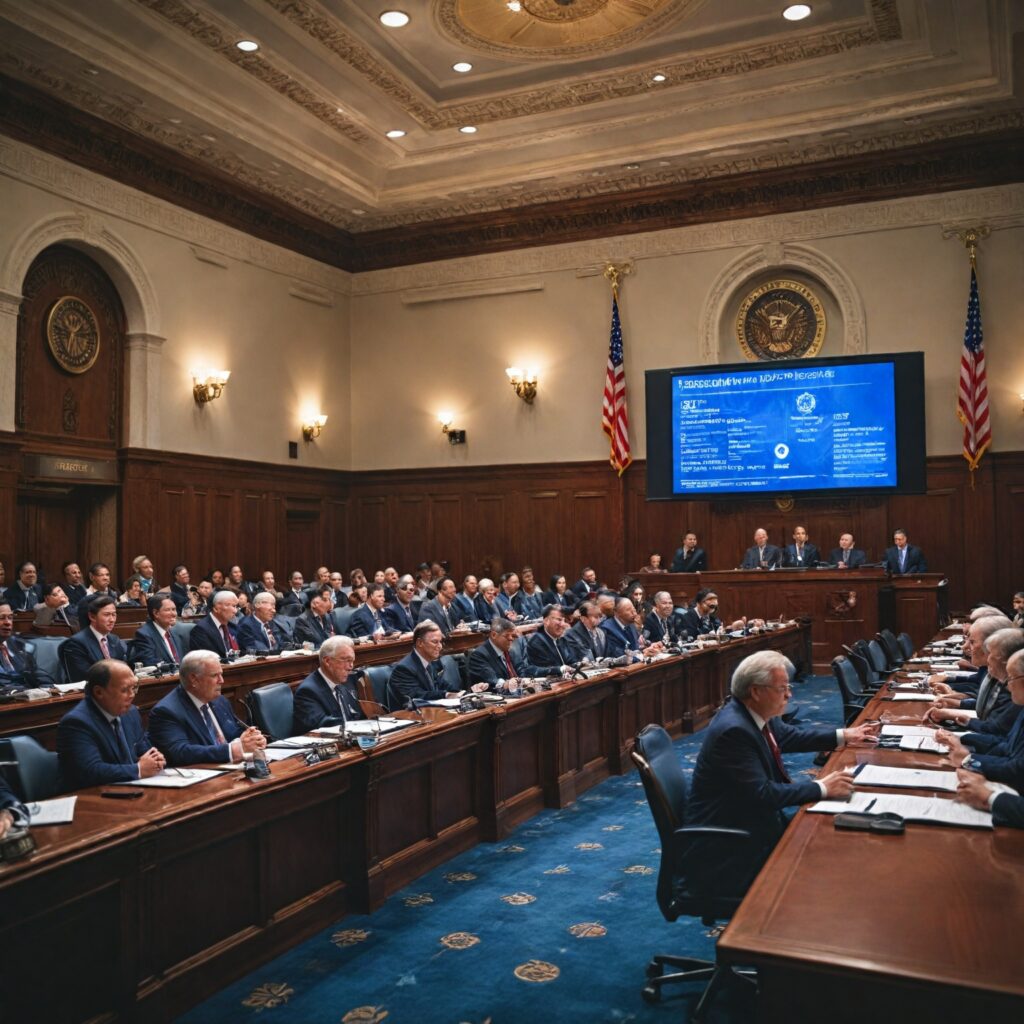
Highlights:
– Senate Democrats criticize President Trump’s tariffs as detrimental to American consumers and businesses.
– The report indicates rising inflation and declines in job numbers linked to the trade war with China.
– White House officials assert that Trump’s trade policies still lead to significant investments and international agreements.
Introduction: The Trade War’s Impact on America
The ongoing trade war between the United States and China has become a contentious issue in American politics, raising critical questions about economic stability and international relations. With President Donald Trump’s imposition of tariffs on a wide range of Chinese goods, the consequences are now evident across various economic indicators. Recently, a report from Senate Democrats highlighted the adverse effects of these trade policies, asserting that they have left the U.S. facing a “weak hand” as it approaches negotiations with China.
As tensions continue to simmer, these findings are significant not only for American consumers and businesses but also for the agricultural sector, which has seen the ramifications of these tariffs firsthand. The insights revealed by this report have prompted concerns from lawmakers, particularly those in the Senate, about the long-term implications of the current trade strategy.
Analyzing the Core Issues of the Trade Strategy
The Senate report outlines that Trump’s trade wars are inflicting serious financial burdens on American families and enterprises. It notes a troubling rebound in inflation following the implementation of tariffs, with the Consumer Price Index showing a 3 percent year-over-year increase in September, the highest since May 2024. Moreover, the analysis suggests that these tariffs are costing American households an additional $1,500 annually, which disproportionately affects lower- and middle-income families that allocate a substantial portion of their budgets to essential goods.
The ripple effects of the trade war are most pronounced in the manufacturing sector, which has reportedly lost 42,000 jobs and faced ongoing contractions for four consecutive months—the longest streak of such losses since early 2020. Democrats have pointed to job declines as evidence that Trump’s aggressive tariff strategy is not yielding the promised economic revival, raising alarms that the U.S. is losing competitive ground to China amidst these intensified trade tensions.
Looking Ahead: Solutions and Negotiations
Future negotiations between the U.S. and China could lead to crucial changes in trade policies, especially considering the current landscape of increased tariffs and their implications. While President Trump expresses optimism about securing a trade deal—potentially involving a reduction of tariffs—critics argue that it is essential for the U.S. to recalibrate its approach to gain leverage during these discussions. The report emphasizes that, despite the hope for concessions from China, the nation shows no signs of relenting, having imposed its own restrictions on American goods, which underlines the delicate nature of the negotiations.
As the situation unfolds, potential solutions may include a reassessment of tariff strategies and engagement in more constructive dialogues. A successful resolution could not only alleviate financial pressures on American families and industries but also restore a sense of stability in the agriculture sector, which has been hit hard by retaliatory measures. Ultimately, how the U.S. navigates these challenges will define its economic landscape for years to come.
In conclusion, the ramifications of Trump’s tariffs and the broader trade war with China resonate throughout the American economy, stirring debate among policymakers and citizens alike. How will the administration adjust its trade policies moving forward? What impact will potential negotiations have on everyday consumers? Could a shift in strategy lead to a more balanced trade relationship with China?
Editorial content by Harper Eastwood

















